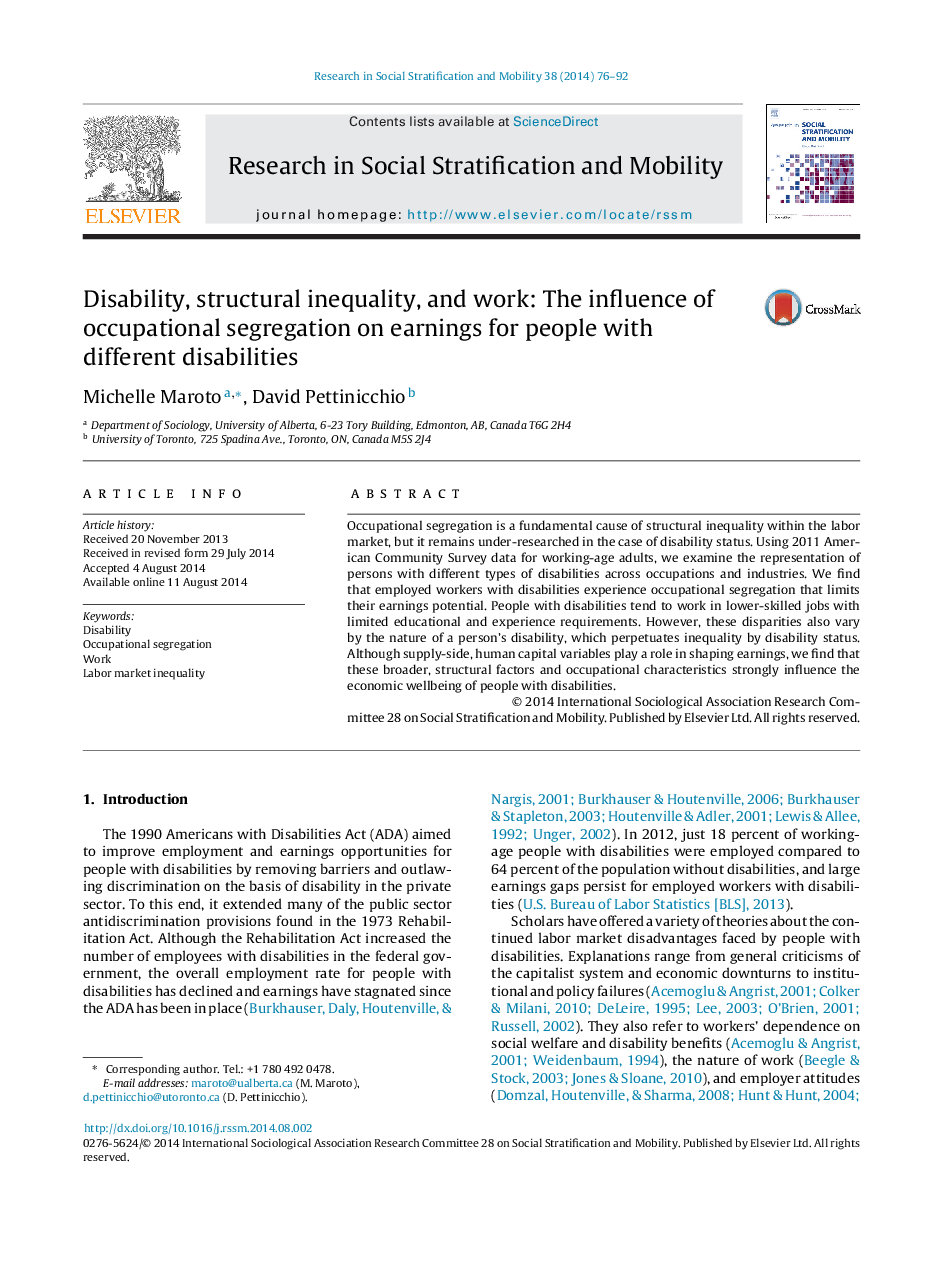| کد مقاله | کد نشریه | سال انتشار | مقاله انگلیسی | نسخه تمام متن |
|---|---|---|---|---|
| 999579 | 1481573 | 2014 | 17 صفحه PDF | دانلود رایگان |
• We examine the representation and earnings of persons with different types of limitations across occupations and industries.
• We find that, as a fundamental cause of labor market inequality, the negative effects of occupational segregation extend to people with different disabilities.
• People with disabilities are often over-skilled for their jobs because they are overrepresented in low-skilled, low-paid occupations that rely on physical labor more than cognitive and psychomotor skills.
• Employed workers with different disabilities experience occupational segregation that limits their earnings potential, where earnings disparities were largest for people with cognitive disabilities.
• Structural factors, such as occupational characteristics and requirements, strongly influence the economic wellbeing of people with disabilities.
Occupational segregation is a fundamental cause of structural inequality within the labor market, but it remains under-researched in the case of disability status. Using 2011 American Community Survey data for working-age adults, we examine the representation of persons with different types of disabilities across occupations and industries. We find that employed workers with disabilities experience occupational segregation that limits their earnings potential. People with disabilities tend to work in lower-skilled jobs with limited educational and experience requirements. However, these disparities also vary by the nature of a person's disability, which perpetuates inequality by disability status. Although supply-side, human capital variables play a role in shaping earnings, we find that these broader, structural factors and occupational characteristics strongly influence the economic wellbeing of people with disabilities.
Journal: Research in Social Stratification and Mobility - Volume 38, December 2014, Pages 76–92
